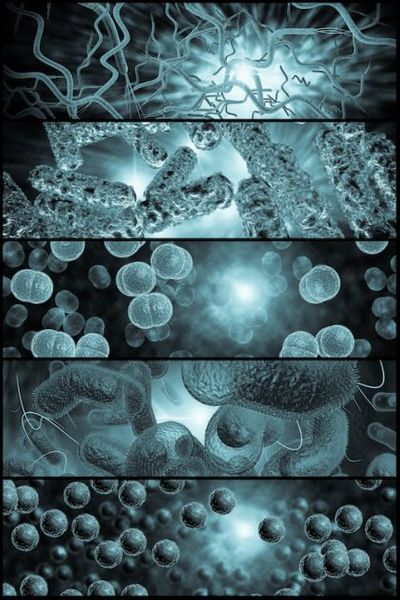Probiotics
As society has progressed, there have been improvements in hygiene and nutrition which resulted in food, especially in the western diet, containing diminished amount of bacteria compared to less industrialized countries(7). As a result, our diets now contain increased amounts of processed foods, preservatives, and artificial sweeteners, ultimately decreasing the amount of bacteria important to fight off inflammatory disorders(7).
Probiotics are live cultures of harmless microorganisms or bacteria that have beneficial effects on the human gut*. Some of these beneficial effects include “providing protective barriers, enhancing immune responses, and clearing pathogens in the gastrointestinal tract”(7). They do this most likely by decreasing the amount of harmful bacteria that can grow, making the intestinal environment more acidic (reducing the pH), and stimulating the gut’s immune system(7). Probiotic supplements are commercially available to purchase as these microorganisms are usually derived from food sources. For example, one of the most common probiotics is called Lactobacillus, which is a type of bacteria that is usually present in our gut and helps break down sugars into lactic acid.
Probiotics and their count or number is expressed as CFU (colony forming units). The Joint FAO/WHO Working Group Report on Drafting Guidelines recommends that the CFU has to be described on the labeling of the product. Some of these products will label it as having 900 million, 5 billion or 50 billion Colony Forming Units. The recommended CFU value for maintenance is between 1 to 2 million. If individual is symptomatic thy may take up to 10 billion CFUs until their problems subside.
*Disclaimer: Please consult with your physician before trying probiotics, the above referenced information is meant as an educational tool and not as physical guided instructions.
Medications effect on the gut
There are many medications that can affect the balance of good bacteria in our intestine. For example, antibiotics are very important to use when necessary to reduce disease, but they can destroy some of the natural microflora in our gut. It is important to make an effort to restore the natural microflora in our gut after antibiotic use. This can be accomplished by taking probiotic supplements and eating yogurt or other fermented foods. Other medications and substances that can damage the intestinal microflora are laxatives, pain killers such as NSAIDs (non-steroidal anti-inflammatory drugs), chlorinated drinking water, use of pesticides in food, artificial food coloring,
chemotherapy, and others.
Please refer to works cited section for full list of references
Disclaimer
The ideas, concepts and opinions expressed in this article are intended to be used for educational purposes only. The author and publisher of this article are not rendering medical advice of any kind, nor is this article intended to replace medical advice, nor to diagnose, prescribe or treat any disease, condition, illness or injury. It is important that before you begin any diet or exercise program that you receive full medical clearance by a licensed physician. Author and publisher claim no responsibility to any person or entity for any liability, loss or damage caused or alleged to be caused directly or indirectly as a result of the use, application or interpretation of the material in this article(8) (modified from The Primal Blueprint book).

